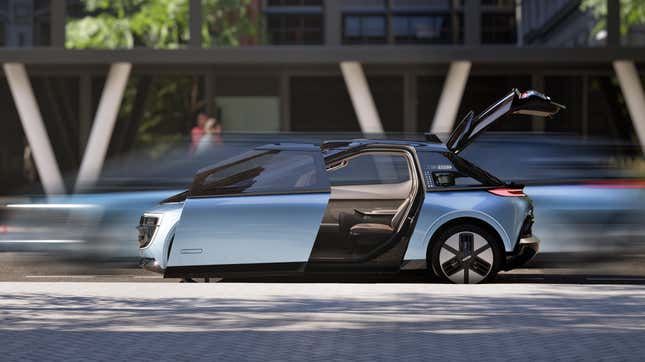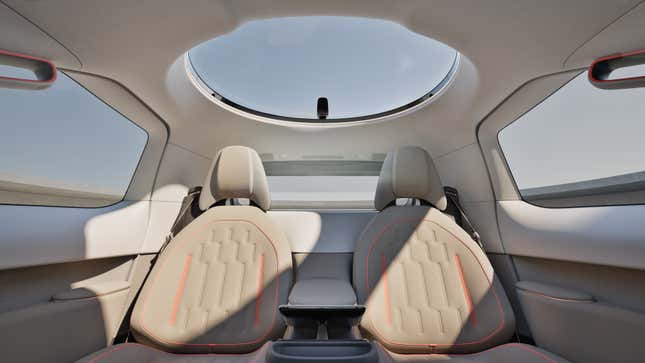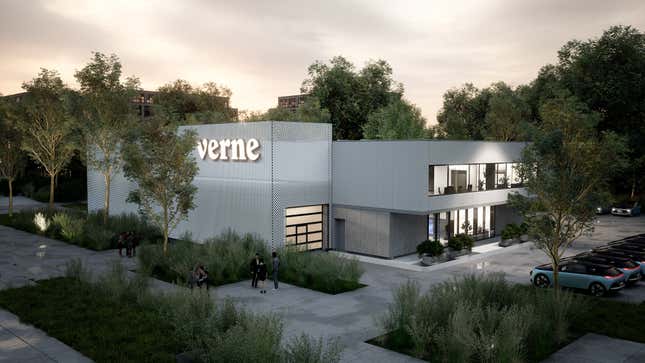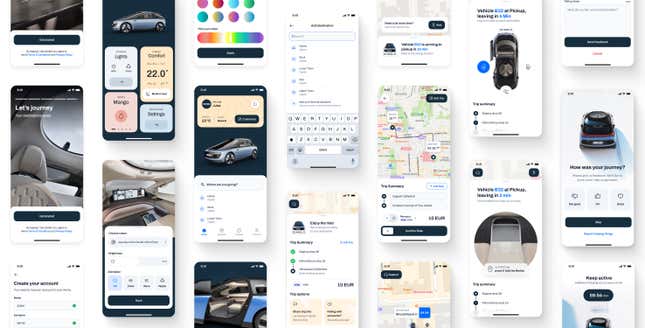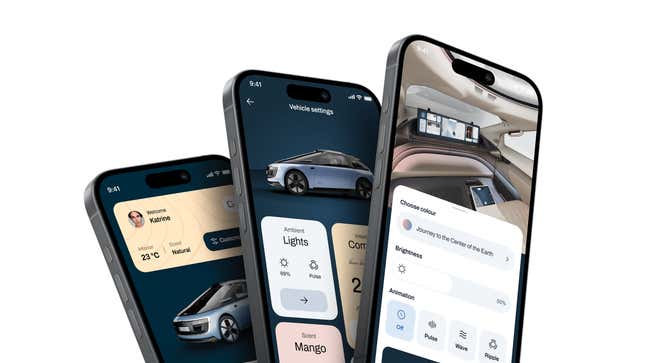Not even a full week after Bugatti unveiled its new V16 hybrid–powered Tourbillon, CEO Mate Rimac is unveiling one other new automotive from one other newly shaped firm of his, this one on the full reverse finish of the spectrum. That is the Verne, a completely autonomous robotaxi run by former Rimac staff that’s set to begin service in 2026. Named after Jules Verne, the famed creator who Rimac says “imagined humanity’s potential via wonderful journeys,” the Verne has an endearing design and the engineering to again it up.
Mate Rimac co-founded Verne with two of his “closest colleagues” from Rimac: Marko Pejković, beforehand Rimac’s Chief Technique Officer, is Verne’s CEO; and Adriano Mudri, beforehand Rimac’s Director of Design, is Verne’s Chief Design Officer. The automotive was revealed on the new Rimac Campus simply outdoors Zagreb, Croatia, the place the event work befell.
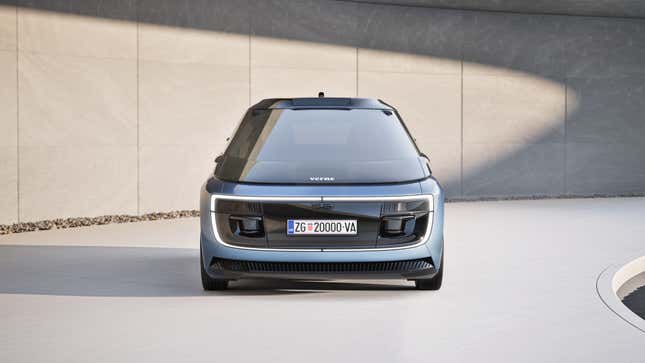
The Verne robotaxi rides on a purpose-built chassis, and it was developed in partnership with autonomy firm Mobileye, utilizing the Mobileye Drive autonomous programs platform consisting of cameras, lidar and radar sensors. Verne says the Mobileye platform is designed for all kinds of areas, highway varieties, climate circumstances and even native driving types. Primarily, the Verne is supposed for denser city environments, however it’ll be able to extra.
In contrast to another forward-thinking autonomous automobiles that look extra dystopian than utopian, the Verne is downright cute, and it’s a form we haven’t actually seen earlier than. (It’s a lot better wanting than Waymo’s Jaguar I-Paces, too.) The Verne is a two-door compact automotive with a dramatically wedge-shaped entrance finish, as if a Lamborghini nostril was grafted onto a futuristic Renault Twingo. The entire autonomous sensors are well-integrated and prominently featured within the design, and its face appears to be like like one huge, illuminated smile. Mudri says the corporate eliminated “human-driven” automobile options like facet mirrors and windshield wipers, which improved aerodynamics and makes the automotive simpler to wash.
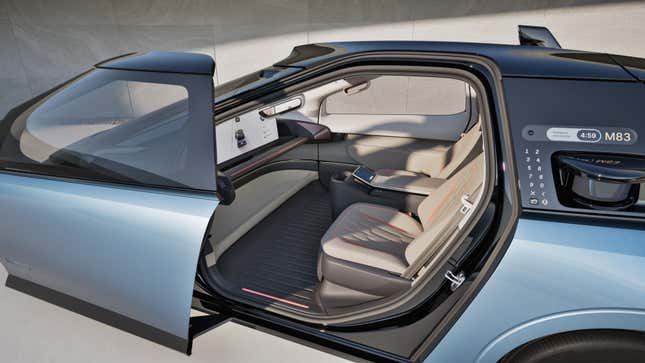
An enormous sliding door on all sides opens to disclose a strictly two-seater cabin; the sliding doorways have been chosen as they don’t impede site visitors and make it a lot simpler to get out and in. Mudri says 90 % of rides are hailed by just one or two folks, so making a two-seater allowed the designers and engineers to maximise the quantity of inside area. Actually, the corporate says the Verne has extra inside area than a Rolls-Royce, and the “extra-large” seats have 5 completely different modes, together with one with a ton of seatback recline and legrests that deploy. It has a hatchback trunk that’s large enough for baggage or huge grocery hauls, too.
There’s no steering wheel or pedals, with the “dashboard” primarily being a shelf upon which a curved 43-inch show sits. (The shelf itself has a fairly cool design, with rose gold accents and comely speaker grilles.) The mounted middle console between the seats has a touchpad for controlling the infotainment system, USB-C ports and wi-fi chargers, cupholders and extra cupboard space. Additionally within the console is what the corporate calls the Median, the bodily swap that’s used to begin and cease the trip, aiming to offer customers a “sense of management” over the automobile, plus buttons to open and shut the doorways.
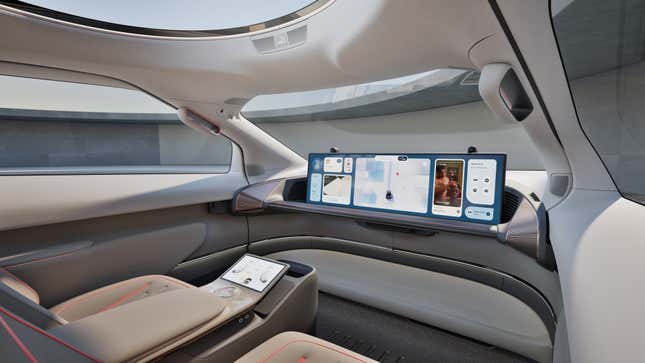
Simply one of the best a part of the inside is the “Halo ring” spherical sunroof, which Verne describes as being “nothing like you will have ever seen earlier than, a portal to new journeys and permits new views of the cities.” And I’ll give it to them, it does look superior — actually, the view out of the Verne typically appears nice.
Both utilizing the telephone app or the in-car shows, customers will have the ability to customise their rides to their liking, even earlier than the automotive arrives. Local weather management temperature and energy, in-car scent, and the window tint opacity can all be modified, and the automotive gives various gaming and media streaming apps. The ambient lighting gives completely different colours, brightness ranges and animations, with some pre-set schemes impressed by Jules Verne books. It’s bought a 17-speaker sound system, too.
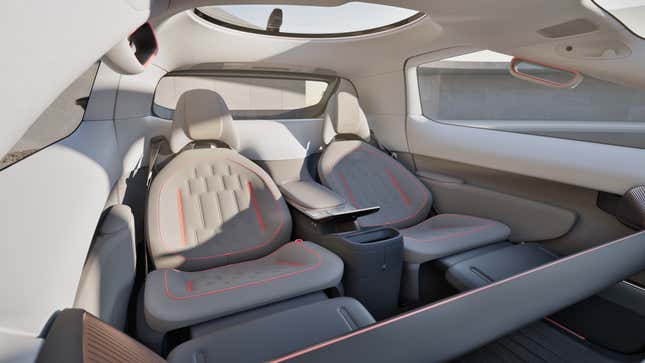
Rides might be hailed through the Verne app, which can present you the automotive’s real-time location and ETA. (Verne additionally says clients can “relaxation assured” their rides received’t be canceled.) The automotive’s rear pillars present the serial quantity and have a numberpad for customers to enter their codes, so nobody will get within the improper automotive accidentally.
In every metropolis that the corporate operates, there might be a primary “Mothership” hub the place the vehicles are charged, cleaned and inspected daily, the primary of which might be in Zagreb in 2026. Verne says the UK, Germany and the Center East might be subsequent, and the corporate has signed agreements with 11 cities and is in negotiations with greater than 30 worldwide. The Verne might be produced at a brand new facility in Zagreb that can obtain “large-scale manufacturing” for worldwide consumption. In the meantime, Tesla has but to disclose something about its alleged robotaxi, with Musk remaining mum on the subject for some time now.
